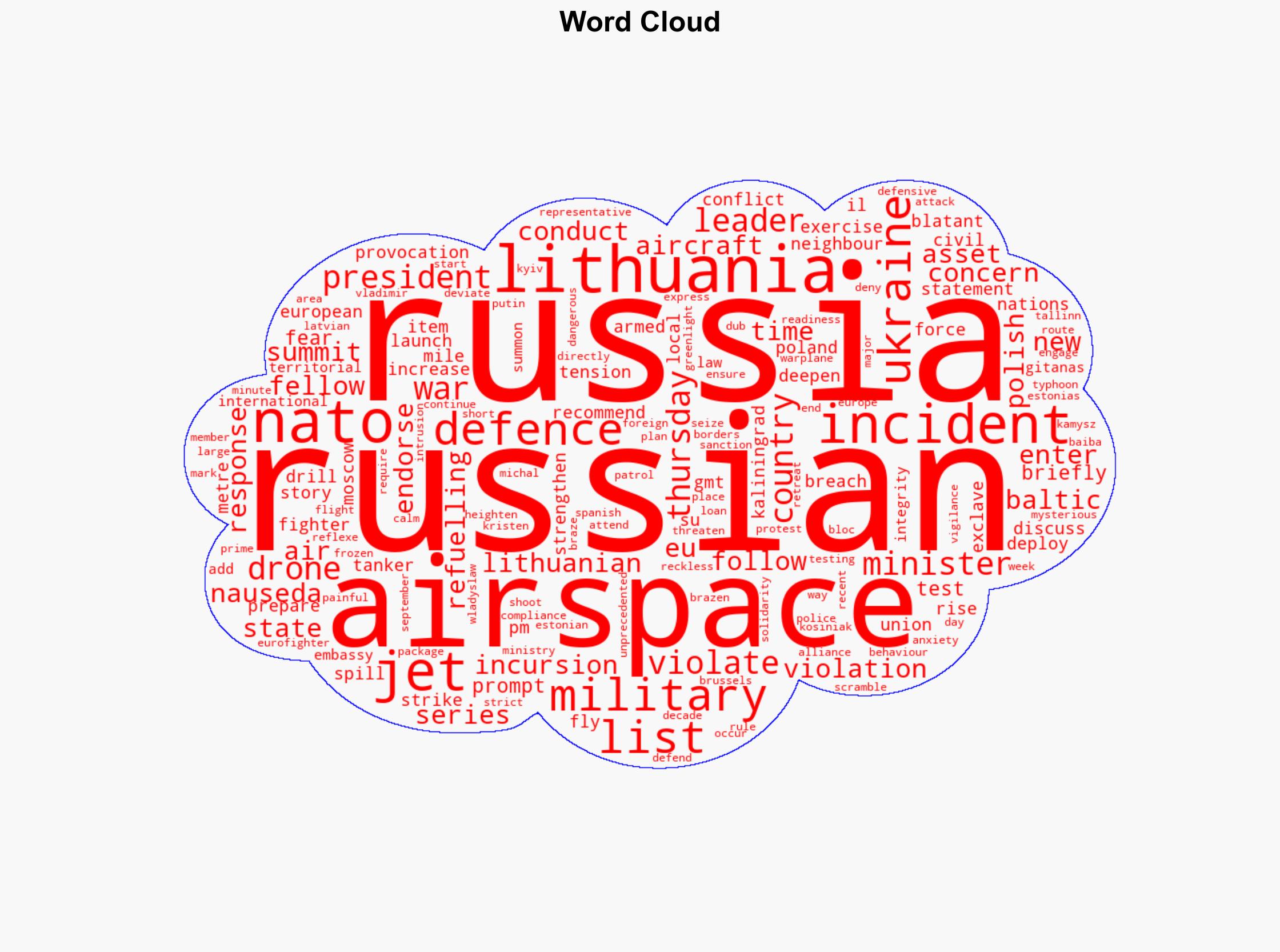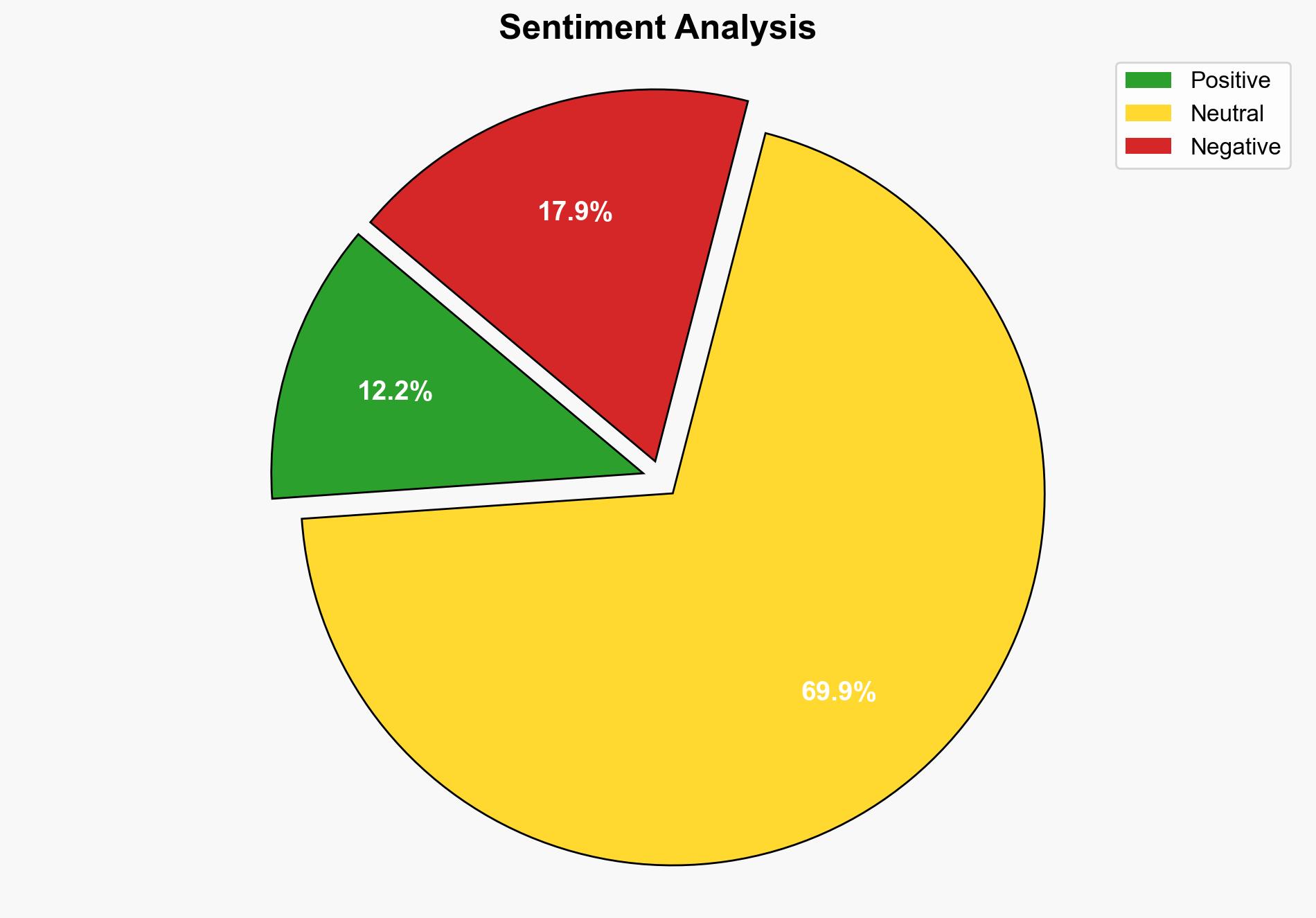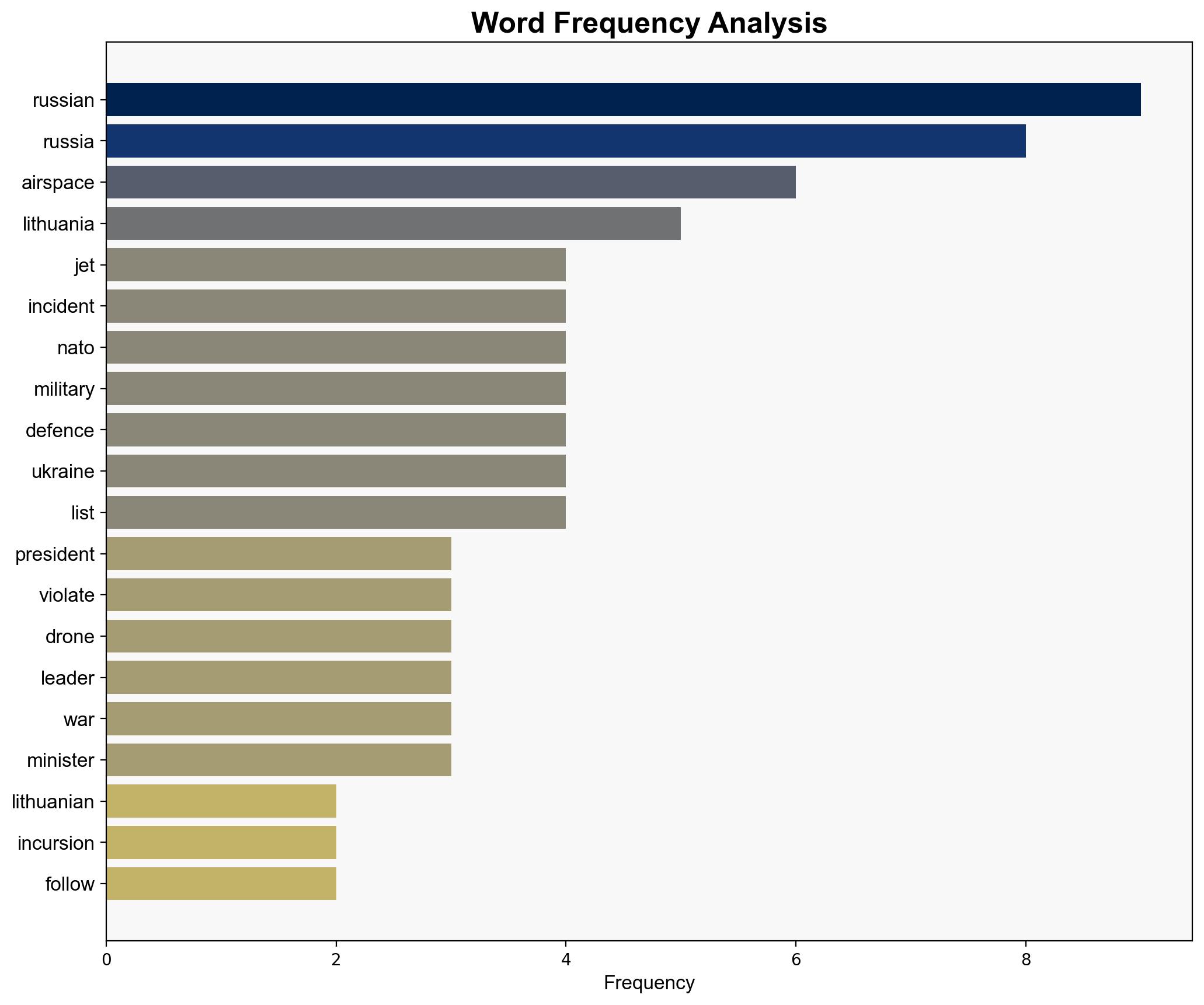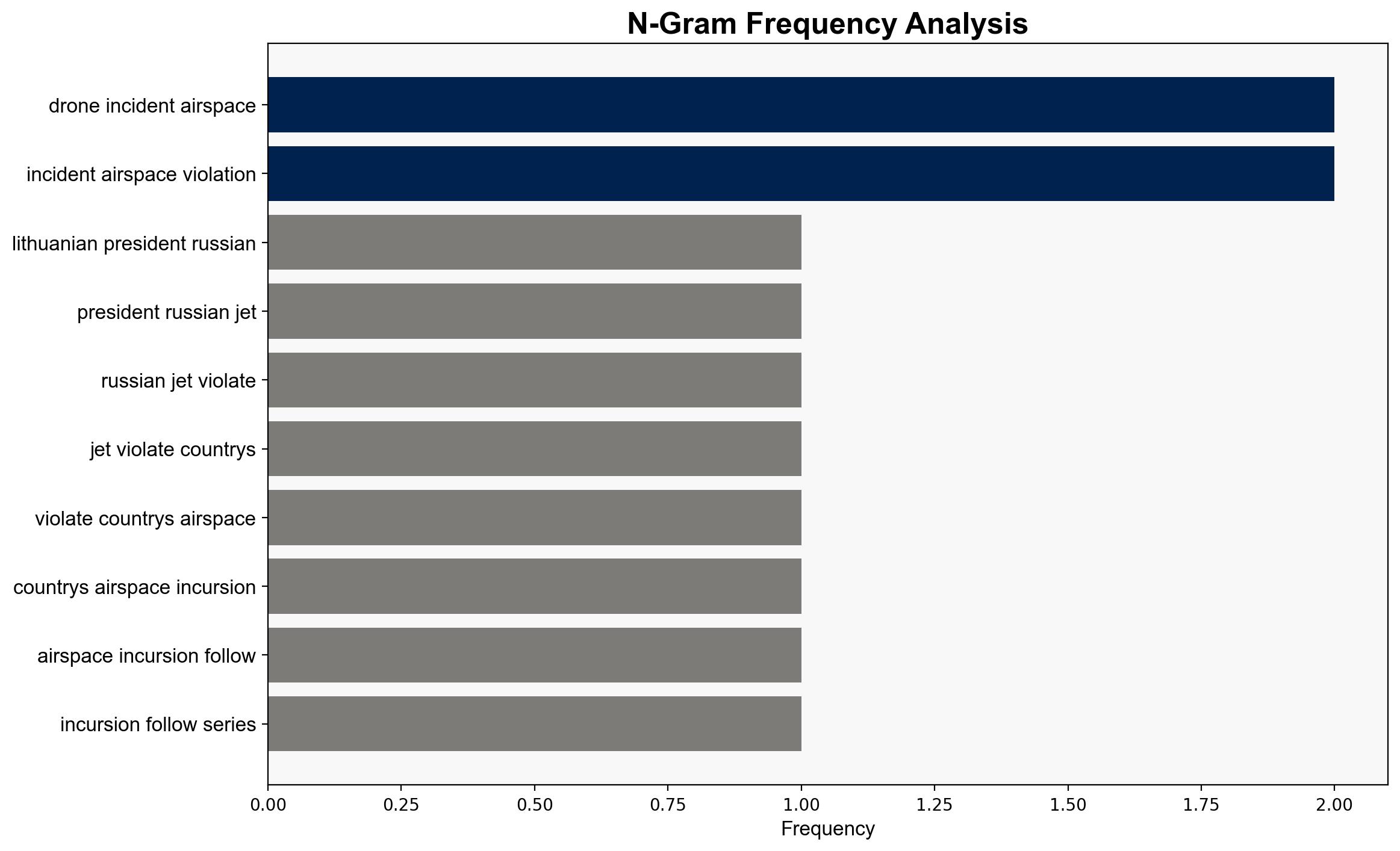Lithuanian president says Russian jets violated the countrys airspace – Al Jazeera English
Published on: 2025-10-24
Intelligence Report: Lithuanian president says Russian jets violated the country’s airspace – Al Jazeera English
1. BLUF (Bottom Line Up Front)
The most supported hypothesis is that the Russian airspace violation is a deliberate act to test NATO’s response capabilities, with a moderate confidence level. This conclusion is based on the pattern of recent provocations and the strategic timing of the incident. Recommended actions include enhancing NATO’s air patrols and engaging in diplomatic efforts to de-escalate tensions while preparing for potential further provocations.
2. Competing Hypotheses
1. **Deliberate Provocation by Russia**: The airspace violation is a calculated move by Russia to test NATO’s response and to assert its military presence in the region. This is supported by the context of ongoing tensions and previous similar incidents.
2. **Accidental Incursion**: The violation was unintentional, possibly due to navigational errors during a routine refueling exercise. This hypothesis is less supported given the denial by Russia and the strategic implications of the incident.
3. Key Assumptions and Red Flags
– **Assumptions**: The deliberate provocation hypothesis assumes that Russia has strategic intent to escalate tensions with NATO. The accidental incursion hypothesis assumes that technical or human errors are plausible despite the geopolitical context.
– **Red Flags**: Russia’s outright denial of the incursion raises questions about transparency and intent. The lack of detailed radar or flight path data in public reports limits independent verification.
4. Implications and Strategic Risks
– **Geopolitical**: Continued airspace violations could escalate into broader military confrontations, particularly if NATO responds with increased military presence.
– **Economic**: Heightened tensions may impact regional economic stability, affecting trade and investment in Eastern Europe.
– **Cybersecurity**: Potential for cyber operations as part of hybrid warfare tactics to destabilize NATO member states.
– **Psychological**: Increased anxiety among Baltic states and NATO members could lead to heightened military readiness and potential miscalculations.
5. Recommendations and Outlook
- Enhance NATO air patrols and surveillance capabilities in the Baltic region to deter further provocations.
- Engage in diplomatic channels with Russia to clarify intentions and reduce the risk of miscalculation.
- Prepare for scenario-based responses:
- **Best Case**: Diplomatic resolution and cessation of airspace violations.
- **Worst Case**: Escalation into military conflict involving NATO forces.
- **Most Likely**: Continued low-level provocations with periodic diplomatic engagements.
6. Key Individuals and Entities
– Gitanas Nausėda
– Vladimir Putin
– Kristen Michal
– Baiba Braže
– Władysław Kosiniak-Kamysz
7. Thematic Tags
national security threats, regional focus, geopolitical tensions, NATO-Russia relations





